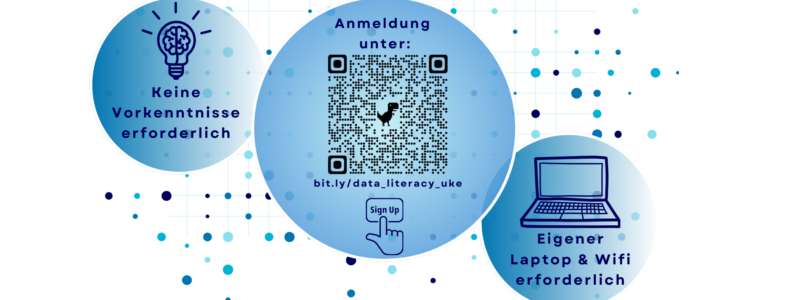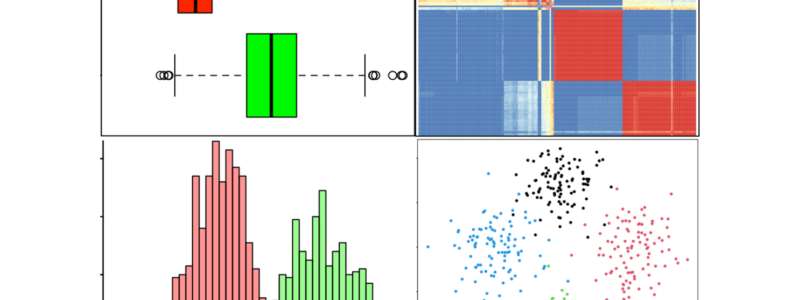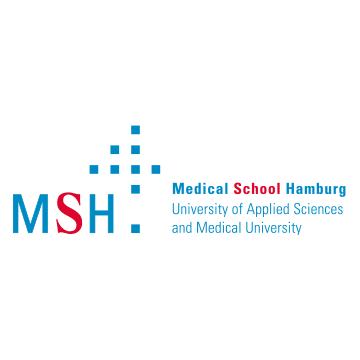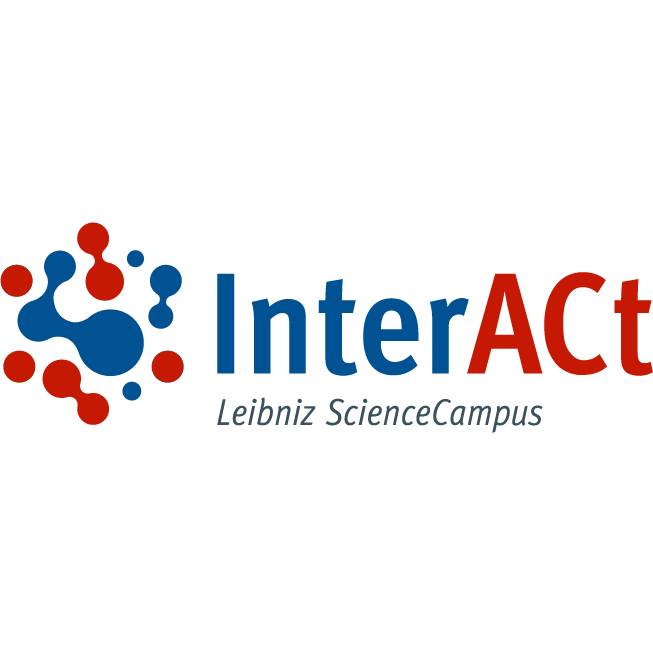systems biology
Events

Biologically inspired AI: A framework for designing adaptive robots
Future robots need to be robust and adaptable, and new design approaches are needed for new production methods. I will talk about my research in using evolutionary algorithms and biologically inspired methods with the aim of having more intelligent, robust, and adaptive behavior in robots. I will give a short introduction to some of the algorithms and show how we, at the University of Oslo, apply them in our research platforms for exploring automatic robot design and adaptation. Here, we take an embodied AI approach and aim to co-design the body and the behavior of the robots, such that they are well fit for their intended environments and tasks. These approaches are still at a fundamental research stage, and I will discuss potential future application areas, as well as challenges and opportunities related to the sustainability of these AI systems.
Learning objectives:
By the end of the session, participants will be able to:
- List some bio-inspired AI approaches for robot design and adaptation.
- Discuss challenges and opportunities related to algorithmic robot design.
Recommended mastery level:
- Some undergraduate level engineering or computer science skills would be beneficial, although not absolutely necessary.
Institution
- AI for Good

Data Literacy mit Fokus auf Dateninterpretation durch Data Mining
Dr. Sonja Hänzelmann and Dr. Fabian Hausmann, Institute of Medical Systems Biology, UKE
In diesem intensiven 3-tägigen Kurs werden Sie in die Welt der Data Literacy (Die Fähigkeit, kompetent mit großen Datenmengen umzugehen) eingeführt. Der Kurs bietet eine praxisnahe Herangehensweise an biomedizinische Probleme, bei denen die Teilnehmer:innen lernen, wie sie relevante Erkenntnisse aus komplexen Datensätzen gewinnen können.
Topics:
Grundlagen der Dateninterpretation und Data Literacy: Verständnis von Schlüsselbegriffen und Konzepten im Bereich Data Literacy
Python für die Datenanalyse: Einführung in die Programmiersprache Python für Datenanalyse und -manipulation
Einführung in Data Mining-Techniken: Überblick über verschiedene Data Mining-Methoden und ihre Anwendungen im biomedizinischen Bereich.
Praktische Anwendung von Clustering, Klassifizierung und automatischer Mustererkennung
Anwendung auf biomedizinische Probleme: Bearbeitung eines ausgewählten biomedizinischen Problems durch ein Gruppenprojekt
Visualisierung und Interpretation der Ergebnisse: Effektive Kommunikation von Analyseergebnissen durch Datenvisualisierung
Interpretation und Diskussion der gewonnenen Erkenntnisse im biomedizinischen Kontext

In Silico Immunity: Use Your Computer to Detect or Treat Infection and Inflammation
learn_bAIome offers workshops and trainings in biomedical AI/data science with tailored formats that take into account background, programming skills and intensity to provide unique, focused, and effective courses. These courses are free and open to students, clinicians, and researchers across academic institutions in Hamburg.
Lecturer: Dr. Lorenz Adlung, I. Department of Medicine, Hamburg Center for Translational Immunology (HCTI), bAIome, UKE
Prerequisites: Intrinsic motivation to learn about infection and inflammation using your computer.
Description: This workshop is open to all students, researchers and clinicians who want to learn how we use (“big”?) data and computational modelling for discovery and rational intervention in infection and inflammation. In today’s biomedical research, the bottleneck has shifted, and for the first time, data generation is no longer the rate-limiting step in scientific progress, but rather: data analysis. We will discuss current trends and show how we can use mathematical concepts and analytical thinking to address unmet clinical needs in influenza infection and inflammatory bowel disease. The workshop will be in presence and therefore each participant should bring their own laptop or ipad.
Topics
- “big” data and code repositories
- mathematical concepts relevant to infection and inflammation
- computational modelling of murine influenza infection
- identification of treatment responders in inflammatory bowel disease
- discussion of the future of bAIomedical research

Introduction to Data analysis in R
Dr. Behnam Yousefi, Institute of medical systems biology, UKE
This workshop is for students, researchers, and clinicians keen to learn the R programming language and data analysis relevant to biomedicine. The course is designed to be practical and comprehensive with no specific background requirements. We will focus on fundamentals of data analysis with examples of real-life data in biomedicine, such as gene expression. By the end of the course, participants will be familiar with the essentials of data analysis, including statistical tests, linear regression, principal component analysis, clustering and data visualization. The workshop will be in presence and therefore each participant should bring their own laptop (no ipads).
Topics:
Basics of R programming language
Statistical tests
Linear regression
Principal component analysis (PCA)
Clustering
Data visualization

Introduction to Data analysis in R
Dr. Behnam Yousefi, Institute of medical systems biology, UKE
This workshop is for students, researchers, and clinicians keen to learn the R programming language and data analysis relevant to biomedicine. The course is designed to be practical and comprehensive with no specific background requirements. We will focus on fundamentals of data analysis with examples of real-life data in biomedicine, such as gene expression. By the end of the course, participants will be familiar with the essentials of data analysis, including statistical tests, linear regression, principal component analysis, clustering and data visualization. The workshop will be in presence and therefore each participant should bring their own laptop (no ipads).
Topics:
Basics of R programming language
Statistical tests
Linear regression
Principal component analysis (PCA)
Clustering
Data visualization

Introduction to Data Wrangling and Visualization in R
“Visualization gives you answers to questions you didn’t know you had.” – Ben Shneiderman.
Exploratory data analysis is a critical step in any successful project. Turning raw data into insights requires a clear process: data wrangling to organize and clean the data, exploratory analysis to uncover patterns, and finally, visualization to effectively communicate your findings. This beginner-friendly workshop on Data Wrangling and Visualization in R is designed to guide participants through these essential steps with practical, hands-on examples. No prior programming experience is required. On the first day, we will introduce the R programming language and its fundamental features. The second and third days will focus on mastering data wrangling using the dplyr package and creating customizable, publication-ready plots with ggplot2, specifically tailored to bioinformatics applications. Additionally, the workshop will include an introduction to R Markdown, enabling participants to create reproducible reports that seamlessly combine code, plots, and analysis insights in a single document. By the end of the workshop, participants will have the skills to perform data wrangling with dplyr, create compelling visualizations with ggplot2, and produce reproducible reports using R Markdown, setting a strong foundation for their data analysis projects.
Topics:
- Introduction to R and R studio
- Basics of R programming
- Importing data from different file types
- Introduction to tidyverse
- Data wrangling with dplyr
- Combining datasets
- Grammar of graphics ggplot2
- Basic plot types, Customizing plots
- R Markdown for creating reports
Due to popular demand registration for this workshop has now closed.
Language: English
Prerequisites: A laptop with Rstudio installed, Enthusiasm

Introduction to Deep Learning in Python
This workshop is open to students, researchers, and clinicians keen to learn the essentials of deep learning (DL) and implementing it via Python. The aim of the course is to provide an introduction to DL especially for those who want to dive into the field of AI and use it in their projects. During the workshop, we will focus on fundamentals of DL, where to use these methods, and how to implement them in Python by practicing on real life data. Therefore, a basic knowledge of python is required. The students will also get familiarized with the Python package of Pytorch, which is the top used package for DL. The workshop will be in presence and each participant should bring their own laptop.
Topics:
- Basics of machine learning and deep learning;
- The Perceptron and the multilayer Perceptron;
- Autoencoders and embedding space;
- Convolutional neural networks;
- Model optimization and evaluation;
- More advanced topics, time allowing
Registration for this workshop is now open
Language: English
Prerequisites: A laptop with Rstudio installed, Enthusiasm

Introduction to Machine Learning in Python
Dr. Behnam Yousefi, Institute of medical systems biology, UKE
This workshop is open to students, researchers, and clinicians keen to learn the essentials of machine learning and implementing it via Python. The aim of the course is to provide a comprehensive map of machine learning (and deep learning) methods with no specific background requirements. A little background in python can be helpful, though. We will focus on fundamentals of machine learning, validation methods, linear and nonlinear models, and feature reduction. The students will also get familiarized with the Python packages of Sci-kit Learn and Pytorch. The workshop will be in presence and therefore each participant should bring their own laptop (no ipads).
Topics
Types of machine learning: supervised and unsupervised
Validation metrics and cross validation
Introduction to linear and nonlinear models include: Linear regression, Random forest, support vector machines, deep neural networks.
Feature reduction.
Regularization.

Introduction to Recurrent Neural Networks (RNNs) and their Applications
learn_bAIome offers workshops and trainings in biomedical AI/data science with tailored formats that take into account background, programming skills and intensity to provide unique, focused, and effective courses. These courses are free and open to students, clinicians, and researchers across academic institutions in Hamburg.
Lecturer: Dr. Fatemeh Hadäghi, Institute of Computational Neuroscience, UKE
Prerequisites A basic understanding of neural networks and machine learning concepts is expected as well as a familiarity with Python and basic programming skills.
Description This workshop is open to students, researchers, and clinicians wanting to learn about recurrent neural networks (RNNs) and their applications in biomedical signal processing. RNNs are vital tools in the field of neural networks, especially known for their capability to manage sequential data. This workshop will provide an accessible introduction to RNNs, concentrating on their core concepts and various applications. We will explore how RNNs excel at capturing temporal dependencies through their unique recurrent connections, making them highly effective for a variety of tasks. Participants can expect to achieve a solid understanding of the basic principles and architecture of RNNs as well as the ability to identify suitable applications for RNNs and implement basic RNN models. The workshop will be in presence and therefore each participant should bring their own laptop (no ipads).
Topics
- Overview of RNN fundamentals and how they differ from other neural networks
- Key applications of RNNs in biomedical signal processing
- Reservoir computing (RC)
- Hands-on exercises and examples to illustrate RNN implementation and usage

Machine Learning for Biomedical Applications- International EUGLOH Workshop in Hamburg
learn_bAIome offers workshops and trainings in biomedical AI/data science with tailored formats that take into account background, programming skills and intensity to provide unique, focused, and effective courses. These courses are free and open to students, clinicians, and researchers across academic institutions in Hamburg.
Prerequisites: Intermediate level computational background and basic knowledge of machine learning
Description: This 3-day international workshop is organised by University of Hamburg’s European University Alliance for Global Health (EUGLOH), Hub of Computing and Data Science (HCDS) and Center for Biomedical AI at UKE (bAIome) to foster international exchange and cooperation among students and researchers working in machine learning relating to biomedical questions. The vision is to create a supportive network and inspire international collaborations.
The workshop will explore various aspects of machine learning using biomedical data with the hands-on practical projects providing the main focus, allowing participants to work in a team environment to understand how machine learning is applied to specific biomedical challenges.
For further details and registration check out the EUGLOH website

Machine Learning in Practice (intermediate level)
learn_bAIome offers workshops and trainings in biomedical AI/data science with tailored formats that take into account background, programming skills and intensity to provide unique, focused, and effective courses. These courses are free and open to students, clinicians, and researchers across academic institutions in Hamburg.
This workshop is open to students, researchers, and clinicians wanting to learn how machine learning is applied for biomedical datasets, the different classes of machine learning algorithms that may be used, as well as the best practices in selecting and evaluating algorithms, and their limitations. The aim of the course is to provide concepts and tools to navigate the use of machine learning in the biomedical landscape. The course will use biological datasets and there will be hands-on components as well as discussions. Participants should already have taken an introduction to machine learning and be familiar with Python programming. The workshop will be in presence and therefore each participant should bring their own laptop (no ipads).
Topics
- Taxonomy of machine learning algorithms
- Linear regression, logistic regression and related methods
- Decision trees
- Support Vector Machines
- Bias & Variance, curse of dimensionality
- Representation learning
- Neural networks and deep learning: MLPs, transformers, CNNs
- Applications to RNAseq and imaging data

Mini Symposium: next-gen biomedical AI- new developments & applications
Whether you have a background in computer science, or biomedical-related fields, this Mini Symposium is designed to be very inclusive for students, researchers, and clinicians working and/or interested in biomedical AI. Our invited speakers will provide engaging presentations that introduce core ideas in AI and demonstrate how they are being applied to solve challenges in biomedicine. There will be opportunities for short lightning talks, Q&A, and networking, all in a fun and relaxed atmosphere with drinks and snacks provided. Please register for this event here.
Invited speakers Fabian Kern (UHH) and Fatemeh Haedaghi (UKE) will give talks on new developments in their research. See titles and abstracts here.
Lightning talks: Interested in giving a short talk about your current research? Let us know in your registration. There will be a number of short talks from selected topics to give exciting impulses of cutting-edge research as well as plenty of time and encouragement of audience participation.
Topics of interest:
- Application of AI in diagnostics (omics, pathology, radiology)
- Predictive modeling for patient outcomes
- Drug discovery and personalized medicine
- Foundation models in biomedicine
- Federated learning and data privacy in biomedicine
- Explainable AI and model interpretability
Institutions

Institute for Systems Medicine ISM, MSH Medical School Hamburg
Research institute of the MSH with focus on interdisciplinary research, and on investigating systems of the human body as part of an integrated whole.

Leibniz ScienceCampus "Integrative Analysis of pathogen-induced Compartments", InterACt
Interdisciplinary infection research network linking existing research groups in the fields of infection research and structural biology in the Hamburg Metropolitan region even more closely.

Universität Hamburg
Adeline Scharfenberg

Universität Hamburg
Adeline Scharfenberg

Universität Hamburg
Adeline Scharfenberg